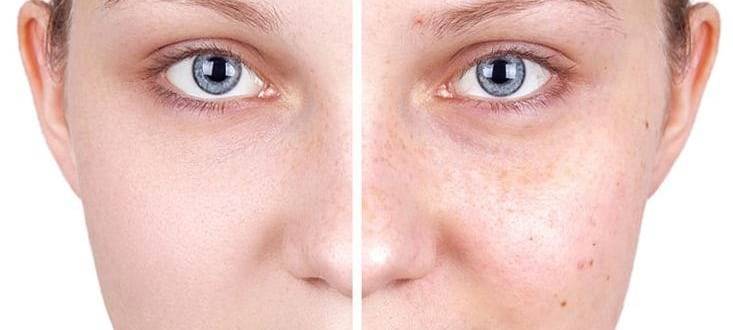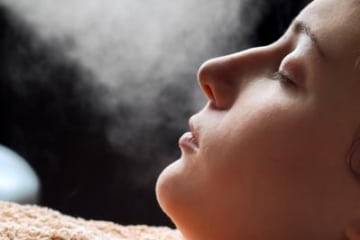
There are many myths surrounding acne and the sun. Which of them all is reality?
Myth 1: "The sun is good for acne
One of the most widespread myths about acne that is actually based on ... an optical illusion!! The tan we get from our exposure to the summer sun's rays not only flatters us, but also acts as a camouflage for our "imperfections". Thus, under a glowing bronze tan can hide the color irregularities in the skin tone and the acne marks that plague oily skins.
In fact, the sun actually exerts a mild anti-inflammatory effect, resulting in a degree of suppression of skin inflammation in cases of acne. Unfortunately, this favorable effect of the sun is short-term. In addition, the sun creates the ideal conditions for acne to return more severe at the end of summer...
The worsening of acne after summer exposure to the sun occurs because the skin has become thicker and "hyperkeratinized" on the surface, thus clogging the pores. After the initial dryness, the skin reacts and produces extra sebum. Trapped in pores clogged with sebum and dead cells, P. Acnes bacteria reproduce rapidly causing pimples and inflammation!
It is therefore very important that our acne patients are properly informed, dermatologically monitored and follow the "summer" mild acne treatments indicated on a case-by-case basis by the dermatologist.
It is worth noting that deep medical cleansing, before and after the summer season, has an important therapeutic and preventive role in mild and moderate forms of acne.

Myth 2: "Sunscreens make acne worse"
In the past, high-protection sunscreens had a very rich and oily texture because the traditional filters used were fat-soluble. Thus, they were unsuitable for oily skin as they clogged pores and created blackheads.
However, in recent years, specially designed sunscreens recommended by dermatologists for acne-prone and sun-sensitive skin have:
- enhanced protection (SPF 30-50),
- are broad-spectrum, i.e. they shield the skin from both UVB-UVA,
- they have a sebum-regulating effect, i.e. they have active ingredients that control or reduce oiliness, - they are hypoallergenic, non-caesogenic (light oil free texture), dermatologically tested so that they are suitable even for the most sensitive skins.
- they offer a perfect matte aesthetic result
Article by Dermatologist Christina Gintzu CG Derma
